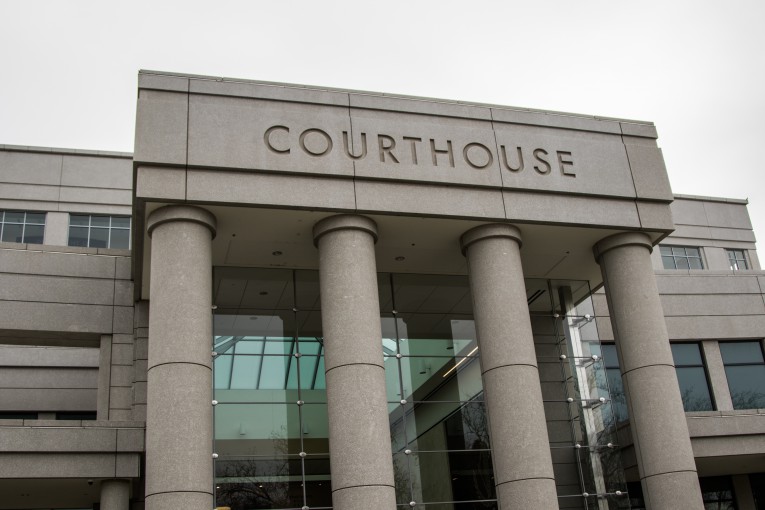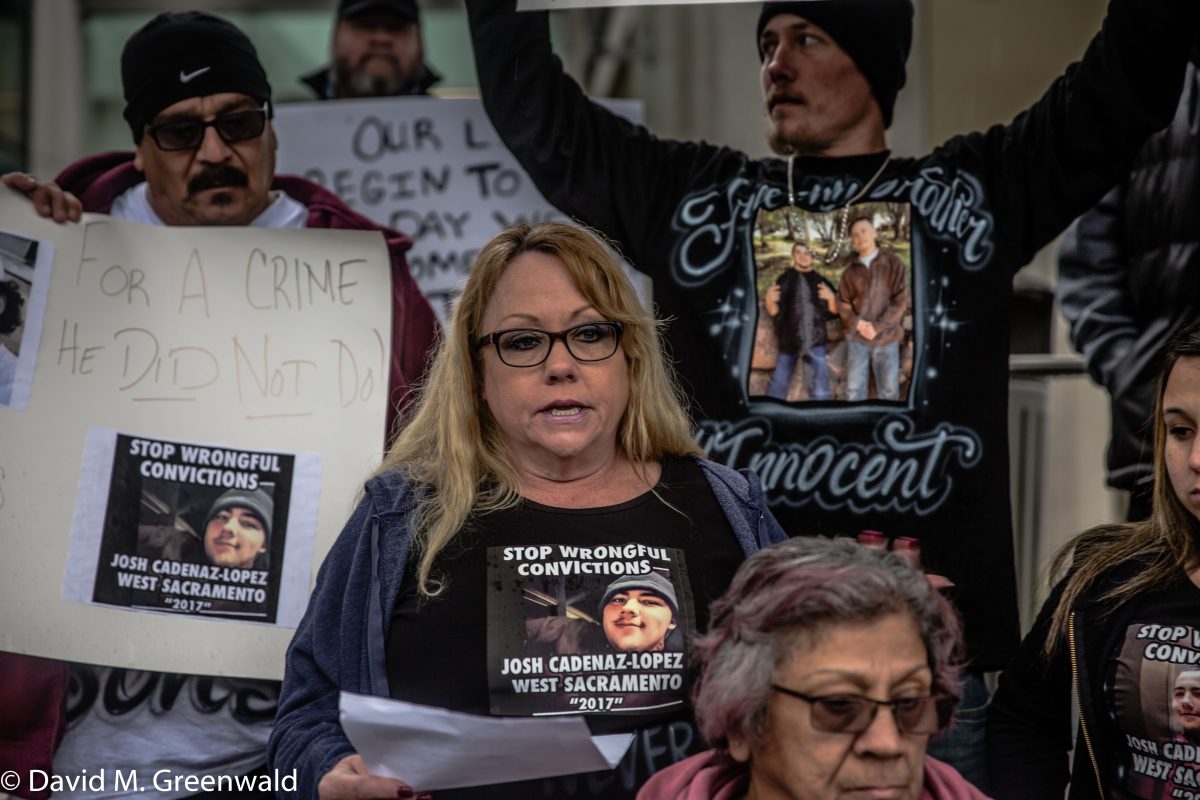

Judge David Rosenberg on Friday pointed out that a jury had convicted Ricky Hernandez and Joshua Cadenaz-Lopez more than seven months ago of robbery and gang charges, as he denied motions for a new trial based on already-filed documents by the counsel for the two co-defendants.
Nevertheless, Judge Rosenberg told Ava Landers, a member of the conflict panel who came onto this case in June when private counsel was dismissed, that he would entertain supplemental motions on the issue of ineffective assistance of counsel.
Ms. Landers said as she has explored the trial history it has raised a number of new issues for her. She said that in order to provide adequate defense for her client, she needs to obtain records. She thought that she had cooperation from Jem Martin, who would file a declaration. In his motion for a new trial, he himself had acknowledged ineffective counsel, even though he provided no details about what that meant.
On November 9, 2017, the trial of Josh Cadenaz-Lopez and his co-defendant Ricky Hernandez ended after several weeks of testimony, with both men being found guilty of robbery, weapons charges, and gang charges.
According to the DA’s press release, they were part of a small crew of people who committed armed robberies at four different locations in Yolo and Sacramento Counties, including a Denny’s restaurant, a 7-Eleven in West Sacramento and two ampm convenience stores in Sacramento County over a 48-hour period in October of 2016.
The DA presented evidence that nine separate victims were robbed at gunpoint and at times ordered to the ground.
However, the evidence actually linking Mr. Cadenaz-Lopez to the crimes is sketchy. There is grainy video evidence that never showed his face. Moreover, what the video does show in terms of  tattoos and leg hair, according to the defense does not match the appearance of the defendant.
tattoos and leg hair, according to the defense does not match the appearance of the defendant.
The defense presented alibi evidence during trial which attempted to demonstrate that, during the time of the crime, Josh Cadenaz-Lopez was at home passed out in bed from drug intoxication. And they presented some evidence that implicates a third party who they believe was involved in the robbery.
Ms. Landers argued that all of this leads to the conclusion there was insufficient evidence that Joshua Cadenaz-Lopez was the person in the video.
She added that the judge erred in instructing the jury on handling alibi evidence, noting the jury instruction should have stopped at instructing the jury that the People must show that the defendant was present and committed the crime for which he is charged – and that the defendant does not need to prove he was elsewhere at the time of the crime.
Ms. Landers argued the court erred by bringing into the instruction that the defendant may also be guilty if he aided and abetted someone else to commit the crime, as she argued the prosecution’s theory was that he was present and they didn’t present a theory of aiding and abetting.
Finally, she raised the issue of a polygraph test that Mr. Cadenaz-Lopez took in February 2018 which showed he was being truthful when he said he was not there at the scene. Ms. Landers attempted to argue that changes in the technology have made polygraph tests more reliable and that the courts are starting to change their thinking on this. She asked Judge Rosenberg to admit this evidence.
Judge Rosenberg ruled that the verdict reached by the jury was supported by the evidence. He said, “The jury could have gone a different way, but it didn’t.” He said that 12 people found Mr. Cadenaz-Lopez guilty beyond a reasonable doubt and that he cannot grant a motion for a new trial based on the insufficiency of the evidence in this case.
On the alibi, perhaps signaling how he will rule on the ineffective assistance of counsel arguments, he noted there was substantial evidence of an alibi introduced at trial, as Mr. Martin himself argued that it could have been another person and named that person, but the jury did not find that evidence sufficient to acquit his client.
Judge Rosenberg said he could not overturn the jury’s call on this and he also said that he stands by his ruling on the jury instruction.
He ruled that none of this evidence was new, it was a theory presented by Mr. Martin at trial, the defense showed the video in question, the jury knew about the alibi and the possible other subject, but convicted the defendant nevertheless.
Finally Judge Rosenberg noted that the current state of the law as written into California Evidence Code section 351.1 is “the results of a polygraph examination, the opinion of a polygraph examiner, or any reference to an offer to take, failure to take, or taking of a polygraph examination, shall not be admitted into evidence in any criminal proceeding, including pretrial and post conviction motions and hearings…”
He said that the fact the polygraph found no deception when Mr. Cadanez-Lopez stated he was not present at the crime was not admissible under current law.
Judge Rosenberg also denied Mr. Hernandez’ attorney, Deputy Public Defender Lisa Lance, in her more limited motion for a new trial. He believes that there was sufficient evidence for a conviction, including on the gang charges that Ms. Lance most strenuously attempted to refute.
The motions for a new trial were denied. However, Ms. Landers will get to submit supplemental briefs on the issue of ineffective assistance of counsel in advance of an August 21 hearing with the sentencing scheduled for September 5 – should the verdict(s) be upheld.
—David M. Greenwald reporting
Get Tickets To Vanguard’s Immigration Rights Event
